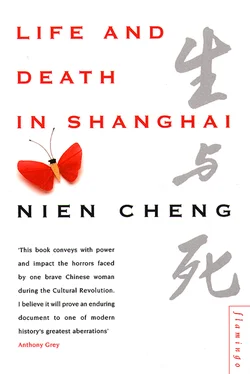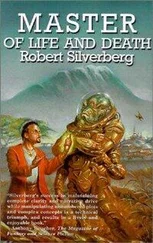1 ...6 7 8 10 11 12 ...34 From early childhood, she had shown an interest in music. We bought her a piano and arranged for her to have private lessons after school. When she was ten years old she became a member of the Children’s Palace in Shanghai, a sort of club for specially selected schoolchildren who earned good marks in studies and behaviour. There she acted in plays and took part in musical activities. Being bilingual, she became one of the young interpreters whenever the Children’s Palace had English-speaking visitors from abroad. Having learned to swim as a toddler in Australia, she was the unofficial swimming instructor of her class. When she was fifteen and in middle school, she was selected by the Shanghai Athletics Association for training with the Shanghai Rowing Club during the holidays and became cox for the first Women’s Rowing Team of Shanghai.
Although we lived in the midst of periodical political turmoil and the personal tragedy of some of our friends and neighbours saddened us, I never had to worry about my daughter. I took it for granted that she would go to one of the better universities, be given a fairly good job upon graduation because of her good marks, and marry a nice young man. Her pay at work would be insignificant, but I could supplement her income with an allowance, as many other parents were doing in China.
I had hoped that after graduation she would be assigned a job in Shanghai so that she could live at home. But I couldn’t be sure of that. I knew that young people with family backgrounds like hers were often deliberately sent to distant regions of China, where living conditions were backward and extremely poor. This had happened to some of my friends’ children. As I watched my daughter grow from a lanky teenager into a beautiful young woman, I wondered what was in store for her. However, when I felt optimistic, I would dream of converting the third floor of the house into a self-contained apartment for her and her family. The prospect of nursing a grandchild was immensely comforting to me. I gazed happily into the rosy future of my dream and could almost feel the warmth of the little creature in my arms.
It had been somewhat of a surprise when my daughter told me that two well-known film actresses, concurrently teachers of the newly established Film School of Shanghai, had approached her to suggest that she try for the entrance examination as a specially selected ‘talent’ to enrol in the school. I could see she was flattered that she had been chosen. But I had hoped for something different for her, some work in which her intellectual power rather than her physical attributes would be an asset.
‘The Film School is on Hong Chiao Road near the old golf club. I can come home from it easily for weekends. And the two teachers told me all graduates will be given jobs in the Shanghai Film Studio. Actually the school is a subsidiary of the Film Studio. It has sent talent scouts all over the country to select students for the entrance examination. There is bound to be a big response because everyone wants to live in Shanghai,’ Meiping said.
‘But do you really want to be a film actress?’ I asked her.
‘I don’t mind. I can do it. It isn’t hard.’ This was her standard response to any problem.
‘I’m sure you can do it. But do you want to?’ I believed this to be an important point. To be happy one should do the job one wants to do.
‘Well, I never think of what I really want to do. It’s no use thinking that way when I know the government is going to assign me a job. Thinking about what I really want to do only leads to disappointment. None of my friends thinks that way either,’ she said. ‘I’ll just enjoy doing whatever the government wants me to do. If I try hard enough to do a job well, I generally end up liking it.’
I suppose my daughter’s attitude was sound in the circumstances. But could a man assigned to carry night soil as his lifelong occupation make himself like the job by working hard at it?
‘So you have decided to try for the entrance examination?’ I asked her.
‘Yes, if you agree. The teachers spoke to me officially. It would be hard to say no without appearing unappreciative. Besides, I like the idea of working in Shanghai. I should hate leaving you alone here and coming home only once a year for a few days at Chinese New Year,’ my daughter said.
‘Yes, yes, darling, that’s certainly an important point to consider. I would hate you to go into the interior to work.’ I agreed with her whole-heartedly.
So she went to the Film School. Three years later she graduated and was given a job with the Shanghai Film Studio, which was run by the Bureau of Films of the Ministry of Culture.
The acting profession was somewhat glamorous even in Communist China, but those who worked in it did not receive higher pay or enjoy better working conditions than factory workers or teachers of the same age group. The function of an actress was primarily to bring entertainment to the masses, so besides taking part in films, she often gave performances in factories, rural communes, coal-mines and oilfields, travelling far and wide with her unit all over China. It was an arduous life. But she thought her experience enriched her understanding and knowledge of her own country and its people, and believed she was rendering service to them by giving them entertainment. For her, that was a meaningful way of life.
As she munched her sandwiches, she told me about the day’s events at her Film Studio.
‘I spent the whole day writing Big Character Posters for the Great Proletarian Cultural Revolution. We were told that the more Big Character Posters one writes, the more revolutionary enthusiasm one demonstrates, so everybody wrote and wrote until the notice board and all the wall space in our section were completely covered.’
‘Was that why you didn’t come home for dinner?’
‘We gave up having lunch and dinner to show our revolutionary zeal. Actually everyone was hungry but nobody wanted to be the first to leave.’
‘What did you write about?’
‘Oh, slogans and denunciations against those who had been labelled “Cow’s Demon and Snake Spirit”, and all China’s enemies such as Taiwan, Japan, Britain, the United States and the Soviet Union.’
‘How do you know what to write? Do you make things up?’
‘Some people do. But I think that’s too dangerous. Most of us get materials from our Section Leader. I concentrate on enemy countries. The Section Leader allows me to because she thinks I know more about other countries since I was born abroad. I don’t want to write about individuals. I don’t know much about the life of any of the denounced people and I don’t want to lie and insinuate. The older actresses, actors, directors and scriptwriters have to write their own self-criticism. A lot of them are being denounced. From time to time, they are led out by the activists to be struggled against at struggle meetings or just to stand or kneel in the sun with their heads bowed.’
‘How terrible!’ I exclaimed.
‘Yes, it’s terrible. I’m sorry for them. I heard that most of them are Chiang Ching’s enemies from the old days. I heard that Chairman Mao has given his wife Chiang Ching full power to deal with everybody in the field of art,’ my daughter said.
‘Hasn’t she been putting on modern Peking operas?’
‘Yes, it seems she has been in disagreement with the leaders in the Cultural Department for some time. In any case, I heard that the old actresses who got better parts than she did in the old days when she was an actress in Shanghai have all packed their bags in preparation for going to labour camps. It’s said she is very cruel and jealous. But it’s best not to talk about her at all.’
‘Surely that’s farfetched. She is the number one lady of China now. Why should she care about a few old actresses?’
Читать дальше












